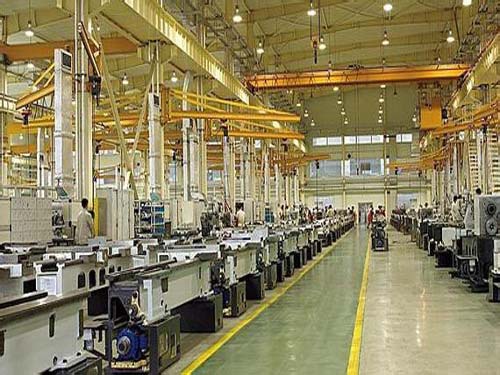
CNC machine tools are high-efficiency and complex automated machine tools with high technological content, such as machines, electricity, and instruments. During the operation of a machine tool, parts will inevitably have different degrees of failure and different types of failures. Therefore, they are familiar with mechanical failures. The characteristics, the common methods and means of mastering the mechanical fault diagnosis of CNC machine tools, have a major role in determining the causes and elimination of faults.
Fault Diagnosis Principles and Basic Requirements of CNC Machine Tools
The failure (or failure) of a so-called CNC machine system is a loss of the prescribed function of an index-controlled machine tool system. Faults can be divided into many types based on the form, nature, and cause. Regardless of the type of failure, some principles and diagnostic techniques can be followed when making a diagnosis.
Principle of exclusion
Mainly include the following aspects: 1) Fully investigate the phenomenon of failure, the first investigation of the operator, the detailed inquiry of the entire process of failure, some of what happened, what measures were taken. Then make a detailed survey of the site; 2) When looking for the cause of the failure, the idea must be broad. Whether it is integrated electrical equipment or mechanical and hydraulic pressure, as long as it may cause the cause of the failure, it should be listed as comprehensively as possible. Then make comprehensive judgments and optimization choices to determine the most likely cause of failure; 3) first mechanical and electrical, first static and dynamic principles. Before troubleshooting, first of all you should take care to eliminate mechanical failures. In the running state, dynamic observation, inspection and testing are performed to find faults. However, if a destructive failure occurs after the power is turned on, the danger must be eliminated before power is applied.
Fault diagnosis requirements
In addition to rich professional knowledge, the personnel who perform numerical control fault diagnosis operations need to have certain hands-on capabilities and practical operating experience. They require the staff to combine practical experience, be good at analysis and thinking, and analyze the causes of faults through the actual operation of the faulty machine tool. No change should be made to achieve the same effect. Complete maintenance tools and diagnostic instruments are indispensable. Commonly used tools include screwdrivers, pliers, wrenches, and soldering irons. Commonly used detection instruments include multimeters, oscilloscopes, and signal generators. In addition to this, the staff also needs to prepare the necessary technical information, such as the electrical machinery principle drawing of the numerical control machine tool, the structure layout drawing, the numerical control system parameter manual, the maintenance manual, the installation, the operation, the use instruction and so on.
Troubleshooting ideas
The design ideas of different numerical control systems are very different, but no matter what kind of system, their basic principles and composition are very similar. Therefore, in the event of a machine tool failure, maintenance personnel must have a clear idea of ​​troubleshooting: investigate the fault site, confirm the fault phenomenon, the nature of the fault, should fully grasp the fault information, so that "more brains, prudent hands" to avoid the expansion of the fault . According to the mastered fault information, the complexity of the fault is clarified, and all the doubt points of the fault location are listed. Preparation of necessary technical information, such as machine tool manuals, electrical control schematics, etc., based on which to analyze the causes of failures, formulate troubleshooting solutions, require open-mindedness, and should not limit the faults to a certain part of the machine tool. After determining the troubleshooting plan, use a multimeter, oscilloscope, and other measurement tools to verify and detect faults with test methods, locate the fault location step by step, and confirm whether the fault belongs to an electrical fault or a mechanical fault. Is it systematic or random? Is it self-failure or external failure and so on. Troubleshooting. Usually the problem is solved immediately after finding the cause of the problem.
Troubleshooting method
The numerical control system of CNC machine tools is the core of CNC machine tools. Its reliable operation is directly related to the normal operation of the entire equipment. The following summary summarizes some methods for determining and troubleshooting CNC machine tools.
1. Make full use of the CNC system hardware and software alarm functions.
Numerous hardware alarm indication devices are provided in modern numerical control systems. Setting hardware alarm indication devices is beneficial to improving the maintainability of the numerical control system. The CNC systems of CNC machine tools all have self-diagnostic functions. During the work of the CNC system, the system can be quickly diagnosed using the self-diagnostic program. Once a fault is detected, the fault is immediately displayed on the CRT as an alarm or the alarm indicator on the panel is illuminated. And this self-diagnostic function can also classify fault alarms.
2. A Simple Fault Alarming Method for CNC Machine Tools.
Generally, CNC machine tools have strong self-alert function and can monitor the system hardware and software working status at any time. Most of the faults of CNC machine tools can display alarm prompts. According to the fault prompts, the fault of the machine tool can be determined, and the faults can be processed and eliminated in time. Machine tool availability and efficiency.